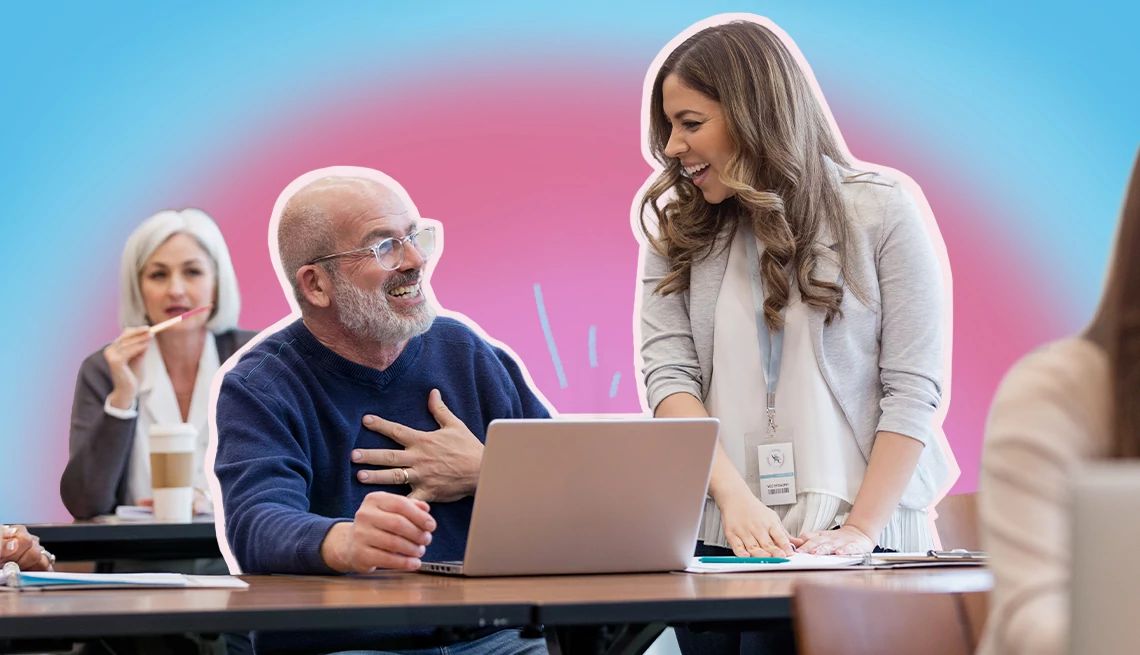AARP Hearing Center


College is often considered the best time of your life. You’re away from home, making new friends, catching live sports live and maybe even falling in love — all the while learning about science, history, art … and yourself.
Wish you could go back? You actually can. Many older Americans winding down full-time careers or enjoying retirement take courses at colleges and universities — in person and online.
The best part: It’s good for you. By engaging in new subjects, socializing with people in and outside of class and generally staying active, college students age 50-plus are taking care of themselves, says Mark Supiano, M.D., geriatrician with the University of Utah’s Hospital Geriatrics Clinic, who emphasizes that college courses can boost brain health.
If you’re ready to head back to school, there’s a nationwide consortium of academic institutions that offers classes designed for older adults. Here’s what you need to know to get started, along with expert advice on what courses can keep your brain happy and healthy.
College courses designed for older adults
While libraries, community centers and other local spots often offer art classes, book clubs, lectures and more, many colleges and universities have increasingly shifted their attention to attract older individuals eager to learn.
Many of the country’s best known and respected higher education institutions are part of the Osher Lifelong Learning Institute (OLLI) Network, a consortium of more than 120 colleges and universities that receive grants and endowments to provide educational opportunities for older adults.
Courses cover a range of topics, from the Civil War to film to artificial intelligence, and are generally under $100 or even free. They can be one-off lectures, run several weeks or span a traditional semester.
“Every university has a different take, but they utilize their unique assets in that community to their greatest advantage,” says Steve Thaxton, executive director of the National Resource Center for Osher Lifelong Learning Institutes, based at Northwestern University.
While the courses are designed for older learners, some universities offer the opportunity to take courses with undergraduates, if you’d rather have an intergenerational college experience.
Here’s what the experts say are the best subjects for older adults and some online classes you can sign up for later this month (check with your local university for in-person classes).
History keeps your memory strong
This is the most popular subject for older learners, according to OLLI statistics. What makes them great for adults 50-plus? The classes often require students to learn dates and facts that triggered dramatic events, and that kind of memorization exercise can help with everyday life, says Vonetta Dotson, chief of neuropsychology at Brigham and Women’s Hospital and president and CEO of CerebroFit Integrated Brain Health, which provides clinical, educational and consultation services to promote brain health and wellness.
“Since memorizing requires sustained concentration, repeated memorization can help train your brain to filter distractions and stay on task,” Dotson says.
Classes to consider:
- Lessons from the Vietnam War (University of Minnesota)
- The African American Military Experience: From Revolution to Civil Rights (Osher National Resource Center at Northwestern University)
- Four Important Events in 20th Century History (Drake University)




































































More From AARP
‘Grandparents’ Lend Ears on Friendship Benches
Older adults fill a mental health care gap in Washington, D.C.
25 Great Ways to Connect With Your Grandkids
Seriously fun ideas for making memories across generations
Is a 55+ Community Right for You?
Moving to a community for older adults is not for everyone. Here's what to know